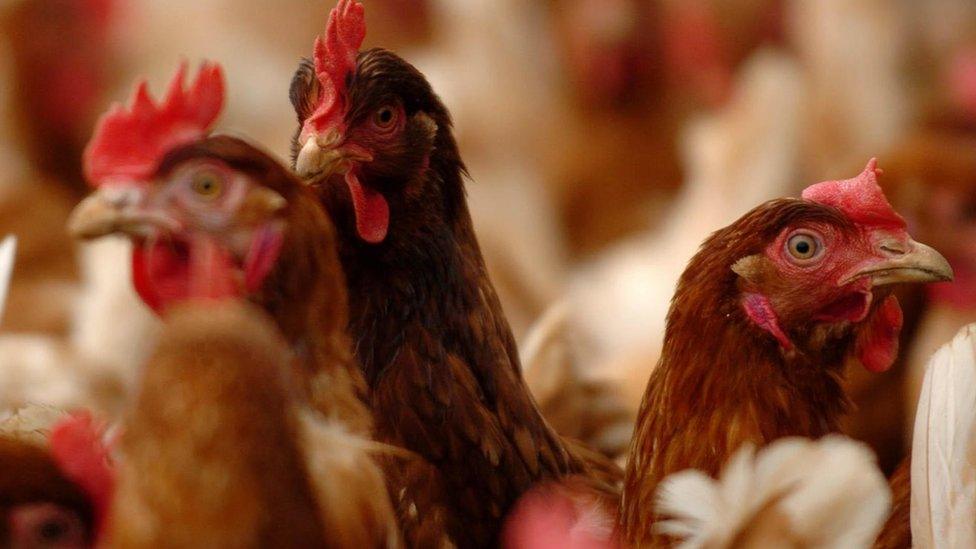Asian hornet nest in Rayleigh removed from back garden for tests
- Published
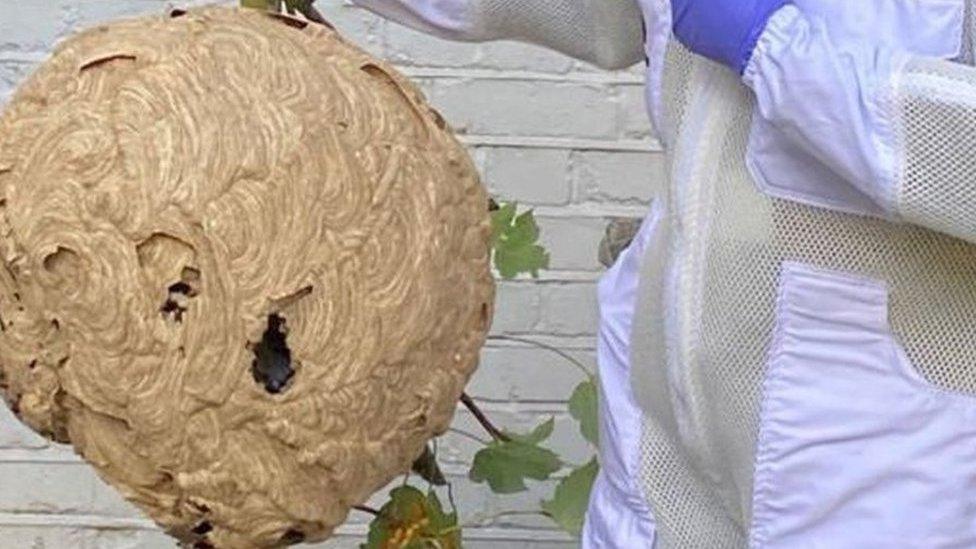
The nest was found six metres up a sycamore tree in David Holborn's back garden in Rayleigh
An Asian hornet nest, the size of an "elongated basketball", has been removed from a back garden after a week-long search operation.
Beekeepers were warned to be vigilant last week after three of the insects were spotted in Rayleigh.
Inspectors from the Animal and Plant Health Agency (APHA) found the nest six metres up a tree, after knocking on a resident's door in the Essex town.
The destroyed nest has been taken to a government laboratory for testing.
David Holborn, whose garden the nest was found in, said the inspectors arrived in "jeans and jumpers" and "suited up" after spotting the nest.
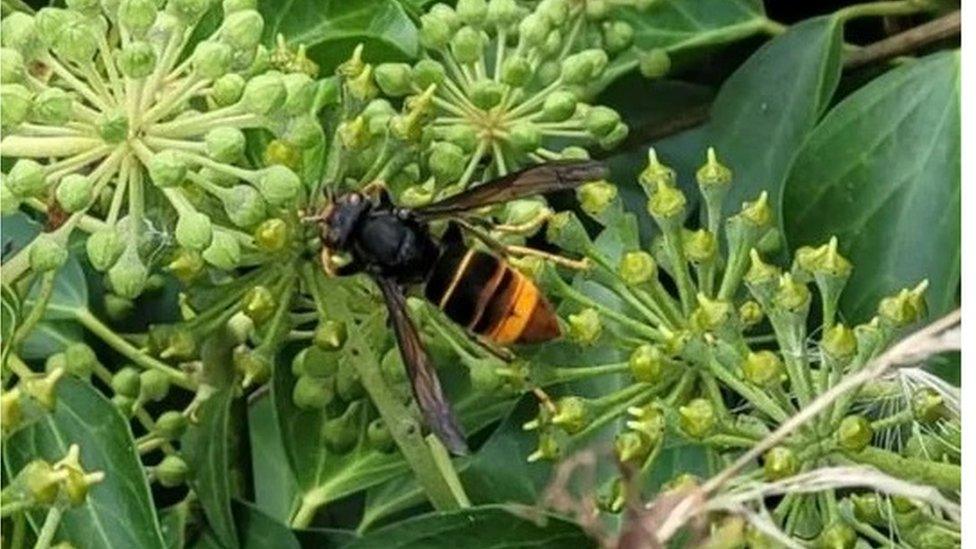
Asian hornets, one of which was photographed by an inspector in Rayleigh, pose no greater risk to human health than native wasps or hornets
"It was the size of an elongated basketball," said Mr Holborn, speaking on BBC Essex.
"It's quite scary to think it's been in our garden for probably two months, but there's been no harm to us.
"They've been keeping themselves to themselves."
Asian hornets, first sighted in Britain in 2016 in Tetbury, Gloucestershire, pose no greater risk to human health than native wasps and hornets.
However, they are known to raid honeybee nests and eat them.
The first sighting in Rayleigh was reported on Sunday, 25 September, and the Department for Environment, Food and Rural Affairs (Defra) issued a warning three days later to beekeepers in the wider area.
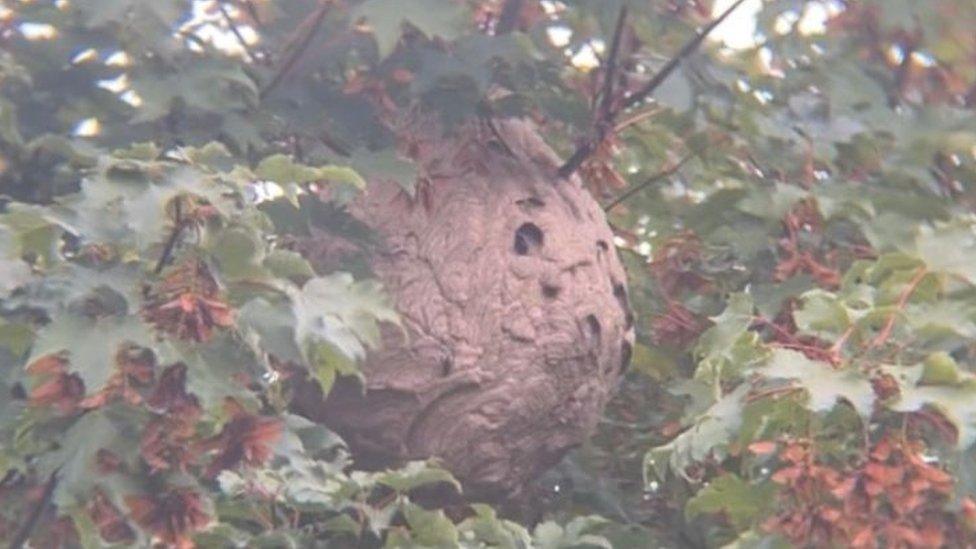
David Holborn was told the nest had probably been in his garden for two months
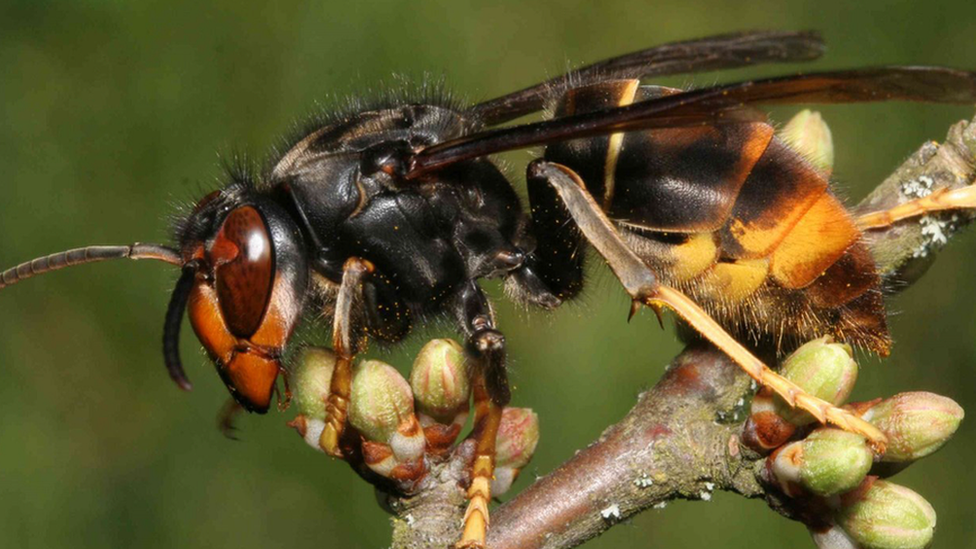
Asian hornets were first spotted in the British Isles in 2016, and record numbers have been found on Jersey this year
It was estimated the nest took two months for the Asian hornets to build and it was discovered in Mr Holborn's garden on Thursday, before being destroyed with an insecticide.
Measuring 50cm long, it was taken on Saturday to the Fera Science centre in York, a laboratory managed by Capita and Defra.
Scientists will try to work out where the insects came from and whether Asian hornet queens have already left the nest and flown elsewhere.
The APHA inspectors will continue to monitor the area and lay small plastic traps for the insects.
Mr Holborn, who had the nest in his garden for an extra night before it was completely destroyed, said: "As a precaution, we did shut the window."

Find BBC News: East of England on Facebook, external, Instagram, external and Twitter, external. If you have a story suggestion email eastofenglandnews@bbc.co.uk, external
- Published28 September 2022
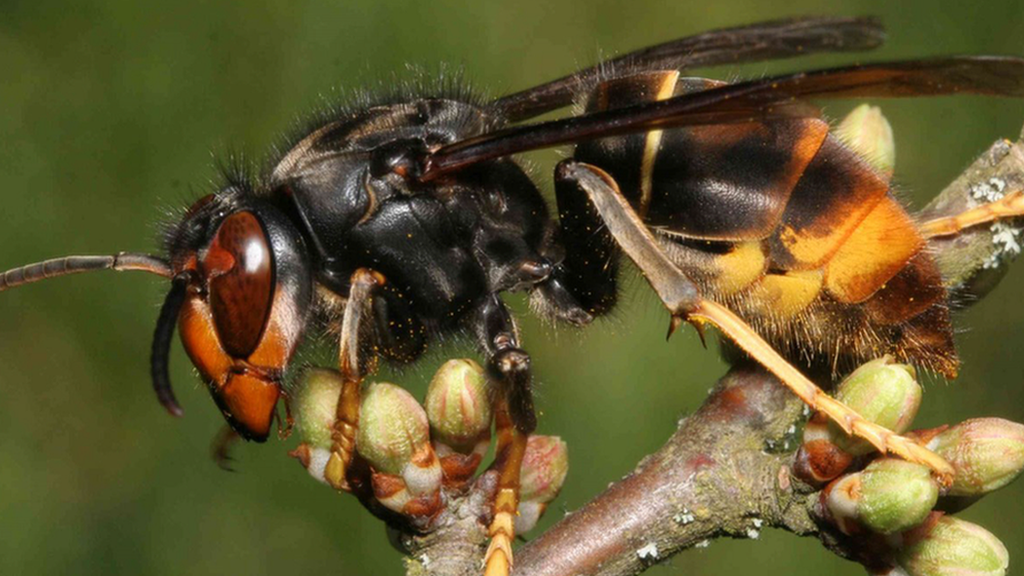
- Published9 August 2022
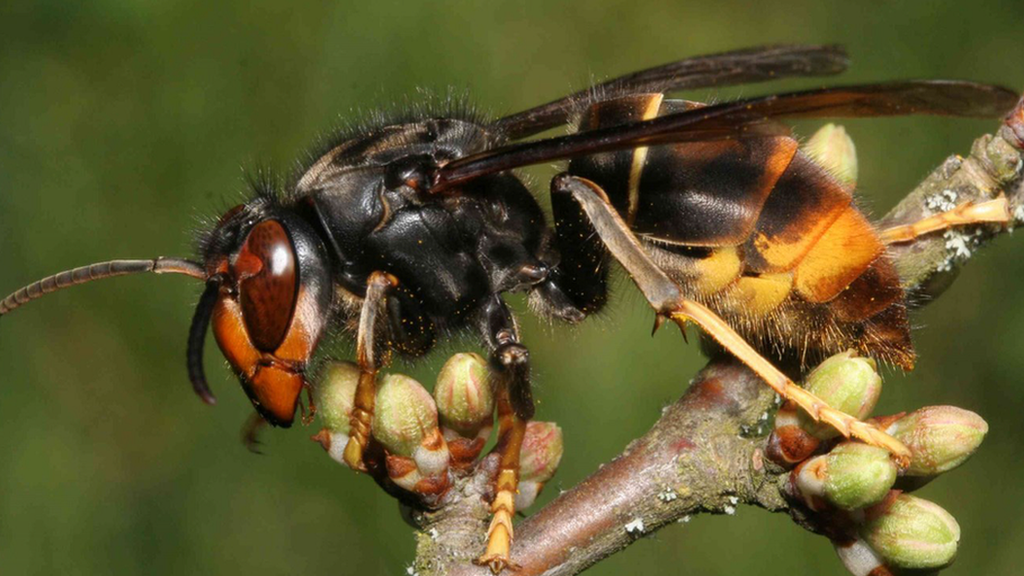
- Published29 September 2022
